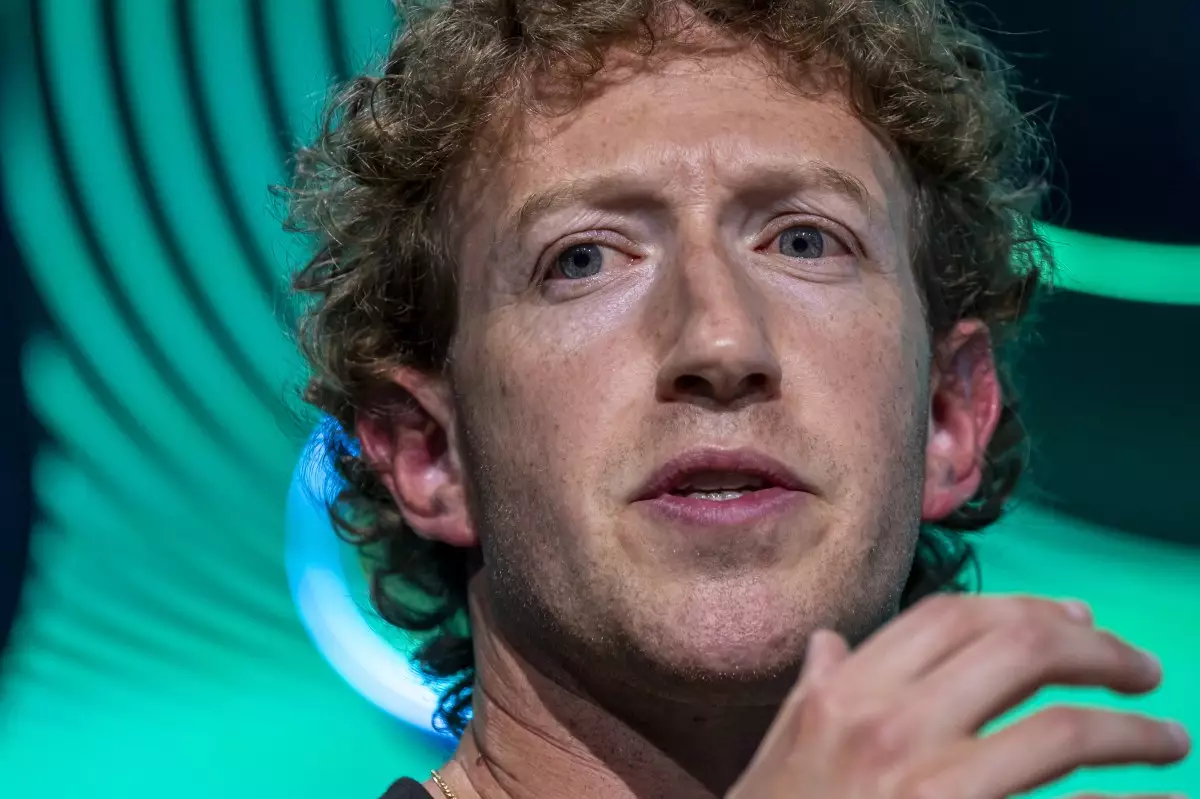In recent weeks, a significant surge in online interest has emerged regarding account cancellations across Meta’s social media platforms—Facebook, Instagram, and Threads. This trend can be traced back to strategic decisions announced by Mark Zuckerberg, the CEO of Meta, which include dismantling the company’s third-party fact-checking system, easing restrictions on content moderation, and increasing the visibility of political content. Such changes have ignited fervent discussions about the potential fallout and have led many users to reconsider their relationship with Meta’s services.
The announcement from Meta ignited a firestorm of reaction among users and digital advocacy groups. By loosening previously embraced restrictions, the company is perceived as attempting to curry favor with the new political landscape. Many experts suggest this could be a strategic positioning aimed at the incoming Trump administration, especially given his known critiques of the platforms’ moderation policies. This shift has raised critical concerns about the implications for not just rhetoric but the overall safety of users’ online environments.
Users are deeply concerned about the resurrection of unchecked harmful speech, propaganda, and misinformation. The content moderation practices that were hard-won after years of grappling with the ramifications of unchecked hate speech and misleading narratives seem to be thrown to the wayside. One glaring instance highlighting the consequences of these relaxed controls was the violent insurrection at the Capitol on January 6, 2021, which witnessed an outpouring of violent rhetoric on platforms governed by Meta.
In direct response to these policy changes, internet searches for terms like “how to delete my Facebook account” and “how to delete Instagram” exploded, reaching unprecedented levels. For instance, Google Trends indicated that interest in “how to permanently delete Facebook” peaked with a score of 100, marking an all-time high level of search interest. Over a short period, alternative queries, including searching for ways to remove posts or accounts, saw an astonishing increase of over 5,000%, reflecting a sizable population that feels alienated by Meta’s recent directions.
The surge in interest regarding alternative platforms is telling. Searches for terms like “Facebook alternatives” soared, with users increasingly drawn to decentralized options such as Bluesky and Mastodon. This exodus speaks volumes about a general discontent with the existing social media ecosystem and the yearning for spaces that prioritize user safety and structured content moderation.
The repercussions of Meta’s dismissal of stringent content moderation cannot be understated. Not only do these changes pose risks to user safety, but they also present ethical dilemmas regarding platform responsibilities. The allegations of the platform facilitating acts of violence in places like Myanmar, where its inaction contributed to real-world harm against the Rohingya people, serve as stark reminders of what is at stake.
Zuckerberg himself previously acknowledged that users desired less political contentiousness in their social media experiences. However, the return to looser regulations indicates a contradiction in this narrative, stirring feelings of distrust among users who feel their safety and experiences are at risk.
In the wake of these changes, voices from the digital community, including those from rival platforms, have implored Meta to reconsider its position. For instance, Mastodon’s CEO has remarked on the troubling nature of these policy shifts and the responsibility platforms hold in curbing the spread of harmful content. Such collective discourse underscores the need for a reassessment of responsibility within the tech sphere and reinforces the idea that users are no longer passive consumers but are becoming active participants in shaping their online environments.
As this situation continues to evolve, it remains to be seen how Meta will react to the significant backlash and whether they will reconsider their approach to content moderation. For now, it’s clear that users are sending a strong message: they demand safer, more accountable social media spaces that prioritize user well-being over political appeasement. The ball is in Meta’s court to address these growing concerns or risk continued decline in user trust and engagement.

